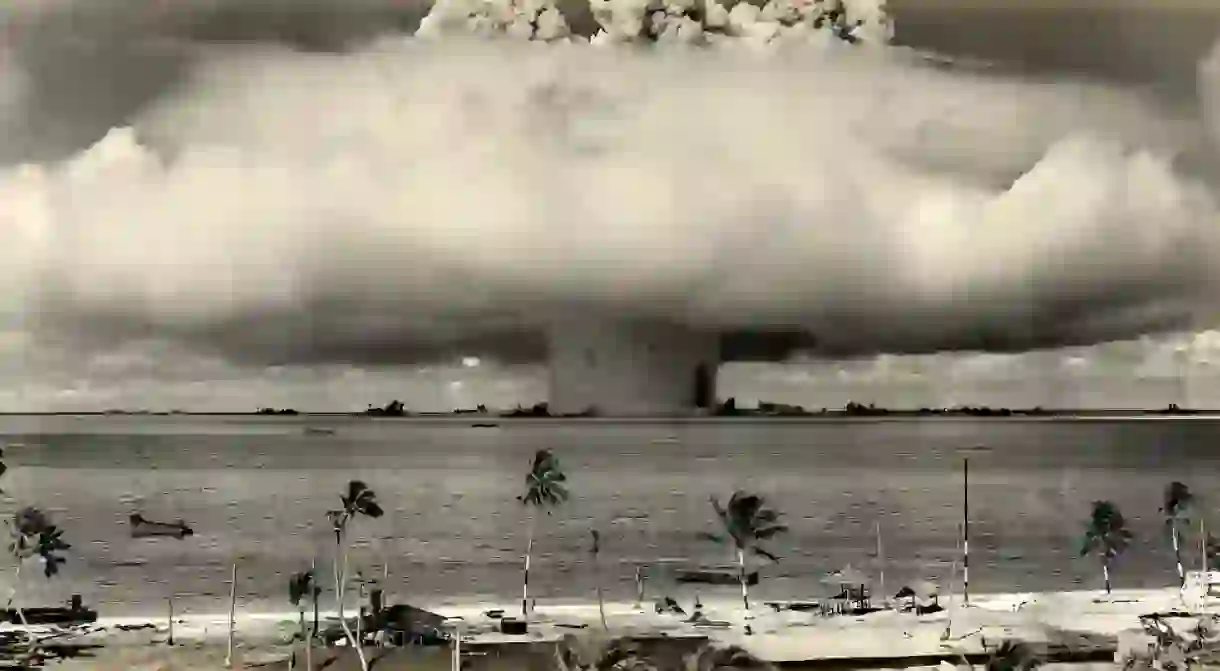Technically, It’s Illegal for Washington State to Prepare for Nuclear War

Nuclear war has taken a backseat in popular discourse since the end of the Cold War. However, recent tensions with North Korea (including President Trump’s threat to wreck “fire and fury” on North Korea if the isolated Asian nation doesn’t stop threatening the United States) have brought the conversation back into sharp focus.
At risk are the intercontinental ballistic missiles North Korea has been developing, which some experts estimate could soon have the capacity to strike the westernmost parts of the United States. Naturally, the region is concerned. Guam, the U.S. territory located furthest west, even received a reassuring phone call from President Trump.
But one state is officially banned from developing any sort of cohesive plan to prepare for the possibility of a nuclear attack: Washington State. In 1984, the state’s legislature voted to prohibit any of the Washington State Emergency Management Division’s resources from being used to prepare for an attack.

The official line of reasoning given by the legislature, then and now, is that the most likely threat facing the state is an earthquake and that the state’s limited resources should all be used to prepare for that risk.
But a more psychological rationale was in the bill’s original language, which then-governor John Spellman struck from the proposal. It read: “The legislature also recognizes that the possibility of surviving a nuclear attack is extremely remote, and believes that planning for an emergency response in the event of a nuclear attack instills a false sense of security in our citizens that they will be protected if a nuclear attack occurs.”
The nuclear preparation prohibition has received scant attention since the end of the Cold War, but current events have some residents and lawmakers in the state concerned. A bipartisan bill introduced in the state legislature in May 2017, co-sponsored by Senators David Frockt (a Democrat) and Mark Miloscia (a Republican) would remove the prohibition and allow for a contingency plan to be made in the case of a nuclear attack.

Miloscia challenged the fatalistic mindset of the prohibition’s original intent, telling U.S. News: “I thought it was silly there was this prohibition at looking at this. People are going to survive. They survive if there’s proper planning.”
Not everyone agrees, however, that nuclear fallout preparations are worth diverting the state’s limited resources away from more likely disaster scenarios. “We have to put people on what the greatest threat is,” said Karina Shagren, a spokeswoman for the Washington State Emergency Management Division. “And in Washington, that’s an earthquake.”
Shagren noted that many of the preparations for an earthquake would also apply to a nuclear disaster, including evacuation and damaged infrastructure.
The bill doesn’t have a date for a hearing yet, although Miloscia has noted he would like it debated before the 2018 legislative session begins. In the mean time, the best that Washingtonians can do to prepare is watch the president’s Twitter feed, and wait.













